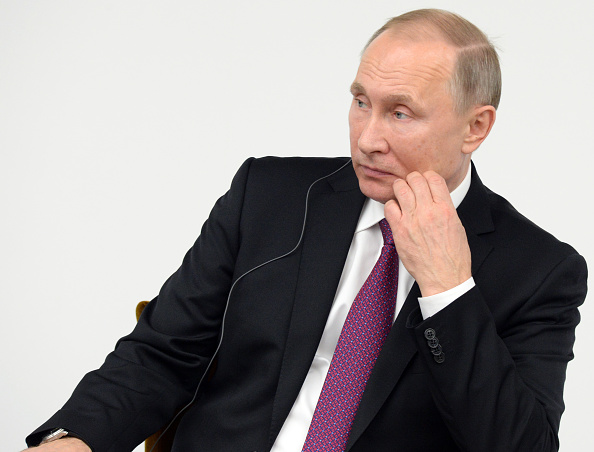The so-called “Congress of the Syrian National Dialogue” concluded in Sochi, Russia January 30, having failed, as have all previous Russian-led gatherings, to achieve significant results. Russian President Vladimir Putin is learning the hard lesson of Middle East involvement: outsiders enter easily but exit slowly and with great difficulty. It’s a lesson learned (and relearned) by the U.S. often and at great cost.
Mr. Putin was looking for a genuine foreign policy win in advance of Russia’s March presidential elections – not that his ultimate victory is in doubt. But he wants a settlement in Syria on the cheap. Genuine Syrian opposition groups either were not invited to Sochi or, in the case of the few who were and even fewer who accepted were stopped at the airport. Sochi ended up as Putin’s “assembly of the willing,” i.e., representatives of the Syrian regime, regime-approved opposition groups, Turkey, and Iran, the latter presumably representing the interests of Hezbollah and the myriad Iranian-led Afghan, Iraqi and Pakistani Shia militia groups.
When Russia intervened militarily in Syria in September 2015, things looked bad for Assad, though not nearly as bad as they had in 2012-2013, which precipitated Iran’s direct intervention. With unchallenged Russian air power, it was only a matter of time before ground forces fighting the “terrorists” – Assad’s definition for anyone opposing his regime – defeated the poorly supplied, organized and equipped moderate opposition forces.
Russia employed the identical strategy in Syria it had used in Chechnya in 1999-2000, massive and overwhelming destruction. In Syria, it was only air power whereas in Chechnya both air and artillery succeeded in not only rooting out Russia’s armed Chechen opponents but killing, according to Amnesty International, approximately 5,000 Chechen civilians and leaving some 200,000 homeless.
The 2017 campaign against Aleppo mirrored Russia’s tactics in Grozny in 2000. Disregarding the presence of thousands of noncombatants and the city’s status as a UNESCO World Heritage Center, Russia’s unrestrained air campaign leveled the city. The Grozny strategy worked and armed opposition elements and thousands of innocent civilians abandoned Aleppo, effectively ending the main part of the civil war, though pockets of resistance remain.
Unlike the U.S. in Iraq and Afghanistan, Putin was never constrained by a free and probing media or by human rights groups reporting on his forces’ pell-mell destruction and slaughter. His forces operate under few “rules of engagement.”
Moscow wants to be the peacemaker now that its client dictator can finally rest without significant armed opposition. But its strategy in Syria has alienated Syria’s population who, with the moderate opposition, has no interest in participating in orchestrated diplomatic charades such as Sochi. Moreover, they firmly oppose Assad’s remaining as their country’s president, the raison d’etre for Russia’s intervention (and Iran’s). It’s hard to see how that gap can be bridged.
Other factors may account for the failure at Sochi. Earlier in the month, Secretary of State Tillerson announced at Stanford University that the U.S. would keep its limited forces in Syria for the foreseeable future, in order to continue training the Kurdish-majority Syrian Democratic Forces, prevent ISIS’s return, and blunt Iranian attempts at permanent bases in Syria. Importantly, Washington also wants leverage in future negotiations on ending the war. Tillerson’s statement may have undermined Putin’s Sochi maneuver.
The Sochi collapse is another stark lesson in outsider attempts to end Middle East conflicts. The U.S. expended enormous resources to end Iraq’s 2004-2009 civil war and firm up its democracy but left precipitously in 2011 before completing the job. And after 16 years, it still hasn’t finished the job in Afghanistan. Britain learned the same lesson in Afghanistan in the 19th century and again in Iraq in the 1920s.
The U.S. may now be in its best position since 2012. To truly settle the conflict, Putin must reach out to Washington. Russia lacks the essential requirements to resolve the crisis. It has neither the convening power nor the requisite level of credible transparency of the U.S., i.e., the political and economic heft to bring the conflict to a close.
President Trump and his senior foreign policy team should consider carefully before acquiescing to just any Putin overture. They should hold fast to their positions: a genuinely inclusive negotiation and reconciliation process involving all factions (less ISIS and Al Qaida), the withdrawal of all foreign military and militia forces, and Assad’s departure.
That’s just a start. This is the Middle East, where nothing is guaranteed and departure deadlines have a habit of being extended.
This column was written by Gary Grappo, a former US ambassador to Oman and currently Distinguished Fellow at the Center for Middle East Studies at the Josef Korbel School for International Studies, University of Denver. He has nearly 40 years of diplomatic and public policy experience.
